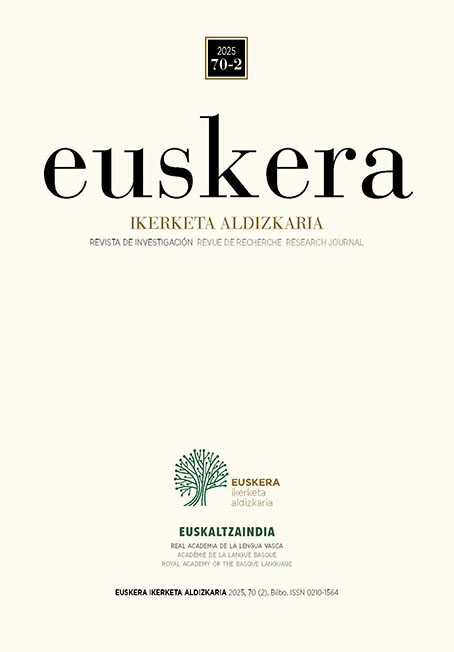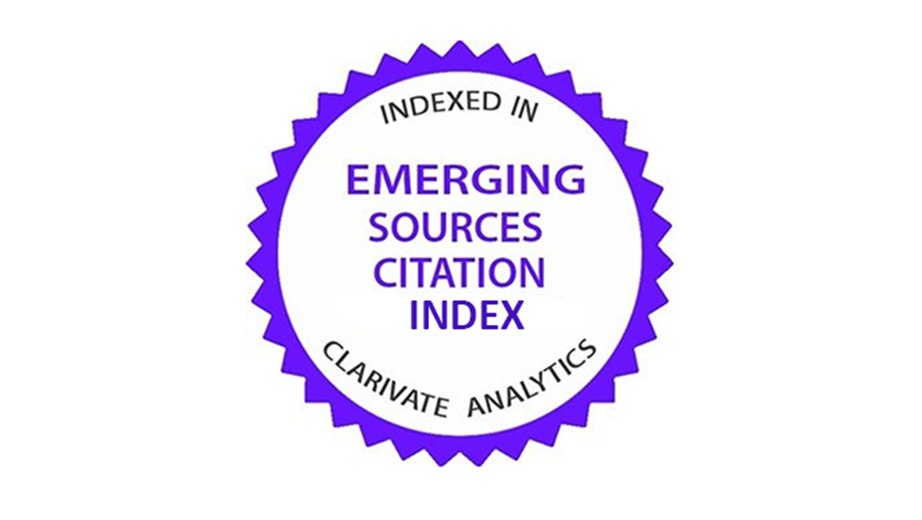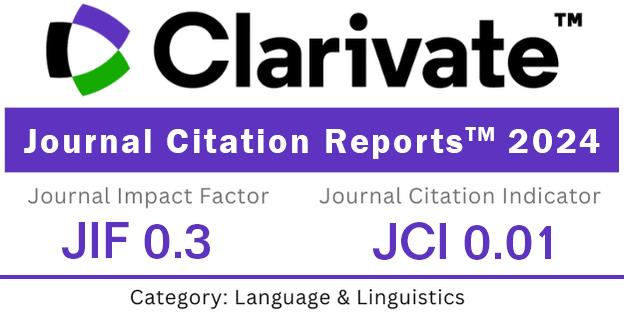Aldizkariari buruz
Euskera Ikerketa Aldizkariaren aurrekari gisa, Euskera Euskaltzaindiaren agerkari ofiziala izan da 1920. urtetik 2022ra bitartean. 2023tik aurrera bi argitalpen dira: batetik, Euskera Ikerketa Aldizkaria eta bestetik, Euskaltzaindiaren buletina. Lehenak Akademiaren lan esparruetako ikerketa-artikulu originalak, liburu-aipamenak eta antzekoak jasotzen ditu, eta paperean eta euskarri informatikoan argitaratzen da. Bigarrenak Euskaltzaindiaren lana eta bizitza akademikoa biltzen ditu eta modu elektronikoan argitaratzen da.
Euskera Ikerketa Aldizkariak bi zenbaki argitaratzen ditu urtero. Lehena, martxo edo apirila inguruan (urtarrila-ekaina aldiari dagokiona) eta bigarrena, irailean edo urrian (uztaila-abendua aldikoa). Ikerketa artikuluak argitaratzeko, Idazketa Batzordeak, anonimotasuna bermatuz, kanpo ebaluatzaileen iritzia jasoko du PEER REVIEW itsu bikoitza sistema erabiliz.
Uneko zenbakia

Gaietan ugaria da zenbaki hau. Ipar Euskal Herriari begia eratxikirik landuak dira: hizkuntza-politikan demolinguistika ezartzeak egin ditzakeen ekarpenak, 1940tik egundainoko poesiaren argi-itzalak, Nafarroa Behereko (Ortzaize) noketaren higatzea, eta Lapurdiko eta inguruko gazteen ahozko euskara informala. Hortik at, euskal hizkeren erritmoa jorratu duen azterlana ere badakar argitalpen honek, eta baita Lehen Hezkuntzari begira taxututako beste bi lan ere: bata, aisialdi antolatua eta euskararen hizkera informala uztartu dituena, eta bestea, lagunarteko hizkera ikastolako langaitzat hartu duen ikerketa. Etnolinguistikari ere leku eman dio zenbaki honek, hilabeteei buruzko artikulua jasoz.
Orobat, «Oharrak» atalean, Ander Manterola bizkaitar etnografoaren ibilbidea eta hizkuntza menperatuen gainean, katalanaren ikuspegitik, eginiko hausnarketa ironikoa ditugu; eta liburu-aipamenetan, batetik aragoieraren egoeraz, eta bestetik, termodinamika literaturan aplikatzeak ekar lezakeen onuraz gogoeta egin da.







